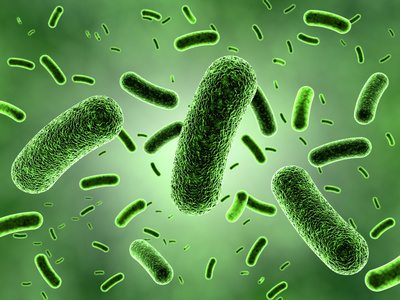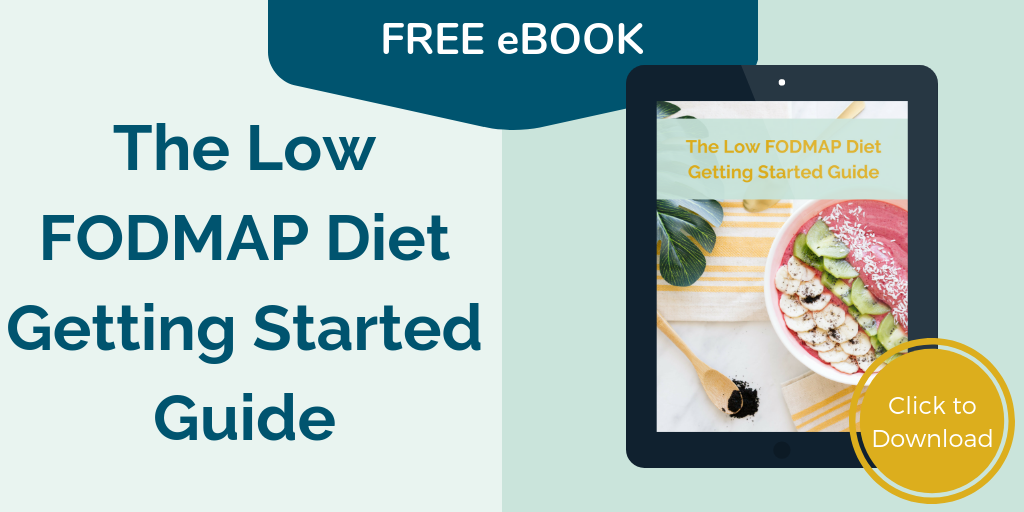Are you wondering about pre- or probiotics and how they affect IBS?
Prebiotics and probiotics have been getting a lot of attention in the media, but we all know that what appears in the news isn’t always the full story. The media has a tendency to sensationalize stories and jump to conclusions with just one piece of research– two things you want to avoid when it comes to your health!
Probiotic yogurts, supplements, and fermented foods have been increasing in popularity these days so the question is – Is this just another nutrition trend (there are so many!), or is there some truth behind the hype? It’s my job to debunk myths about gut health so I can provide you with sound advice based on reliable research. Oh the life of a registered dietitian!
My team has explored current research to help you determine if these special bacteria deserve their 5 minutes of fame, and whether or not you should consider making them a part of your healthy routine.
What are Probiotics?
Probiotics are simply bacteria that benefit our health when consumed in adequate amounts. The most commonly used probiotics are Lactobacilli and Bifidobacteria, so look out for these names when you’re reading labels of foods that claim to have probiotics.
It’s important to understand that not all probiotic products on grocery store shelves are created equal – they don’t necessarily contain enough bacteria to have a positive impact on your health.
Another factor to consider is whether or not products have actually been tested to ensure that the probiotic bacteria in them has survived food processing procedures (like pasteurization) and if they will be able to stay alive while travelling through your digestive system (if they arrive alive in the gut, they can be a benefit). To learn more about your digestive system and gut bacteria, read Three Things You Need to Know About your Gut.
What are Prebiotics?
So we’ve established the importance of probiotics remaining alive inside our bodies so they can flourish and potentially improve our digestive health. Well, if it’s alive, it’s gotta eat! That’s where prebiotics come in … they are the food source for probiotics.
If you have IBS, the trouble with some of these prebiotics is that because they are not fully digested, they sit in the colon and ferment, potentially causing unpleasant and uncomfortable symptoms like gas, bloating and discomfort.
For example, artichoke, asparagus, barley, chicory and onion are great prebiotic food sources for healthy probiotic bacteria, but they are also HIGH in FODMAPs… and you know what that means, right?
Research shows avoiding high FODMAP foods can actually improve the symptoms of IBS for more than 75% of people. Bananas and tomatoes on the other hand are some great alternative prebiotic food sources that are low in FODMAPs.
If you come across other prebiotic food sources and want to give them a try, be sure to check the Monash Low FODMAP app to see if it is low or high FODMAP – choose low FODMAP foods to avoid digestive trouble.
The first step if you’re looking to improve irritable bowel syndrome (IBS) or another digestive disorder or disease, is to understand more about the Low FODMAP diet and if it can help. Download my free eBook to help you better understand this diet and get started implementing simple steps to get rid of symptoms like gas, bloating, pain, diarrhea or constipation related to IBS. Click here to get a copy emailed to you right away.
What is the Research Telling Us About Pro and Prebiotics?
Do you want the good news or bad news first? I’ll start with the good news, because it’s the most fun ;-). Good news – we are learning a lot about the role of probiotics and gut health and have gathered a lot of helpful information on the topic. Bad news – unfortunately, we still do not have a definitive answer as to whether they are helpful for IBS sufferers or not.
Probiotics and IBS Overview
Some probiotics have been shown to produce chemicals that can change functions in the gut such as motility (how quickly food moves through the gut) and some have been shown to affect inflammation in the gut. These results suggest potential roles for probiotics in the management of Irritable Bowel Syndrome (IBS) and Inflammatory Bowel Disease (IBD).
Again, this research is still in its preliminary stages and no clear conclusions can be made. Here is what we can say based off of the research:
- Current research indicates that there may be a marginal benefit of taking probiotics if you are suffering with IBS; however, we still do not have an answer as to whether they definitively alleviate IBS-related symptoms.
- More research needs to be done over longer periods of time and with more research participants suffering from IBS to develop concrete evidence to support/not support the use of probiotic in the treatment of IBS.
- There is no particular strain or type of bacteria that we know of to be the most effective in the treatment of IBS. However, the research generally recommends a probiotic with a variety of bacteria, particularly from the Lactobacillus and Bifidobacterium genus.
- Although probiotics have a large margin of safety, you should still talk to your doctor and/or dietitian before starting probiotics and use them as just one part of your treatment plan for digestive health. Having a complete plan considering diet, supplements, activity and stress is the true key to living a symptom free life!
What I hope that you will take away from this article is that every person is different, and that IBS is a complex gut disorder that isn’t easily resolved by one simple intervention. Probiotics may be a part of your plan for better digestive health and a reduction in IBS symptoms, but it’s critical you talk to your health provider to learn the best way to introduce probiotics and how to monitor their effect on your symptoms.
Wishing you good gut health & wellness,
Stephanie and The Team


